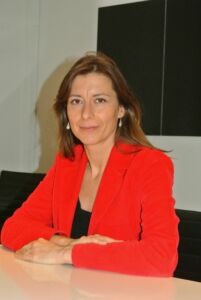Business
Closer-to-home outsourcing in fashion thanks to Spanish consultancy
This article is more than 10 years old.
Ilabis has already helped Danish clothing companies move production from Asia to Spain

Spanish businesswoman Patricia M Montesinos
It is no secret that doing business in Denmark can be an expensive undertaking. In March, a Europe-wide comparison found that labour costs in the country are the most expensive in the EU.
Coming home
In recent years, this has prompted a large number of Danish companies to outsource parts of their business activities overseas, especially to Asia. But the tide could be turning and, in some industries, businesses are recognising that it can make financial and strategic sense to come home, if not to Denmark, at least to Europe.
The Spanish businesswoman Patricia M Montesinos runs Ilabis, a consultancy that helps Danish small and medium-sized enterprises (SMEs) move their operations to Spain. Montesinos has lived and worked in Denmark for three and a half years, before which her career spanned a number of industries in Spain and Latin America.
Fashion for Spain
Montesinos has already helped Danish companies in the fashion industry to move production to Alicante on Spain’s Costa Blanca. She explained that there are both general and industry-specific advantages to this course of action.
“There are a number of advantages to moving your production to Spain,” she said.
“The cost of doing business in Asia is rising, making Spanish production costs competitive. There are lower cultural barriers for Danish companies, a similar business environment, a comparable tax system, local suppliers, skilled professionals and no time difference.”
Responsive to trends
The textile and footwear industries in Alicante have a long and proud tradition, making for an extremely well qualified workforce at the disposal of fashion companies that base their production there. According to Montesinos, faster delivery is also key. “In Spain it is possible to work in smaller volumes and take delivery much faster than you typically can with production in China, for example,” she said.
“This is vital for designers, who are increasingly working with smaller collections and want to be able to respond to the trends right now.”
Bridging cultures
Montesinos sees her role as being the bridge between Danish SMEs and potential Spanish partners. “Although the business cultures are similar, there are small differences that it helps to understand,” she explained.
“There is a different way to negotiate in Spain. It takes a little more time. Whereas Danes are very direct, Spaniards might want to have lunch together in order to build the relationship.”
Watch this space
Montesinos expects more companies to follow. “The Spanish government wants to invest in bringing foreign business to the country and there are lots of synergies for the many Danish SMEs looking for a new production strategy,” she explained.










































